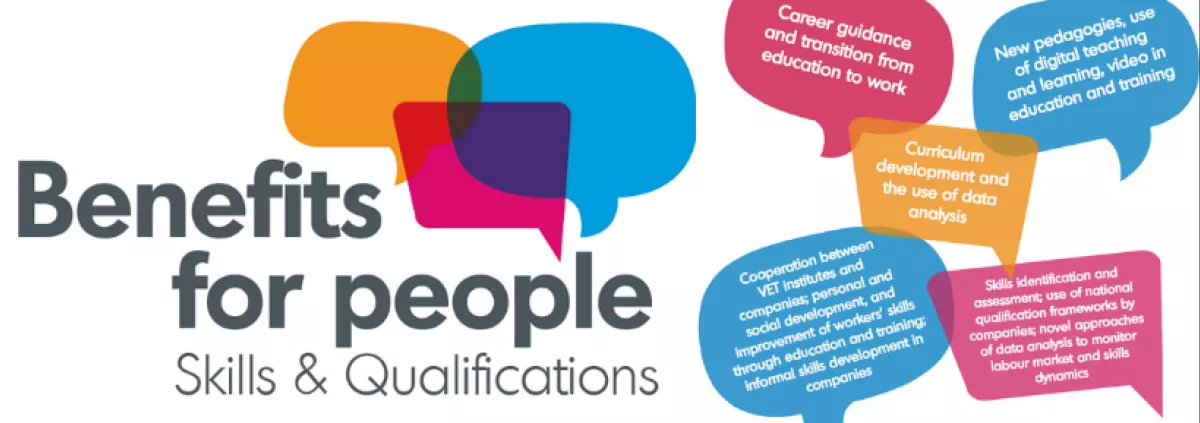At the 'Skills and qualifications - #Benefits4People 'conference the ETF presented and explored 7 success stories of the best practices in some of the EU neighbor countries such as Lebanon, Serbia, Georgia, Kyrgyzstan and Ukraine. We discussed about the benefits of skills development and effective qualifications.
How can we make sure that people can benefit more from skills and qualifications?
What changes should be done in the curricula to make this happen?
What new practices and tools need to be developed?
Join us on the debate and share good practice taking place in your country!
Here are some good examples of the best practice to inspire you:
Lebanon – Training and certification for employees and job-seekers
The Lebanese Training Centre (LTC) offers training for employees, entrepreneurs and family business owners to update their skills and help them get better in their jobs. Unqualified jobseekers can get training for a qualification for the labour market. Successful trainees receive a certificate signed by the Lebanese Chamber which operates the LTC. The certificate is valued by the Chamber’s 15,000 member companies. See more: www.ltc.org.lb
Serbia – Real-life learning for students
Students at Mihajlo Pupin school make toys from the electrical components of old circuit boards, and sell them at student fairs. The project makes students aware of the environment, because they recycle electronic waste. Making the toys develops students’ creativity, and selling them increases their business experience. The proceeds of the fair are donated to charities, which creates empathy towards other children. See more: www.etspupin.edu.rs
Serbia - Business Plan
Developing entrepreneurship with community support. Dragacevo High School has a prize-winning entrepreneurship programme called ‘Take a Step’ where students develop ideas with the support of teachers and students mentors, and then pitch their ideas to a jury. The competition is broadcasted on local TV. Local businesses offer cash prizes to the three top teams.
Georgia – How one career guidance manager can make a difference by building partnerships
Career guidance manager Fati Jikidze of Community College ‘Iberia’ connects with employers to increase scholarship and employment opportunities for her students. She talks with employers about their business, and tells them about the college. This creates a win-win situation, because employers go to her when they have vacancies, and college graduates can start their working careers and improve their skills. See more: www.iberias.ge
Georgia – Work Skills Development programme (WSD) makes VET an attractive option for young people
Georgians care about education, but not many pupils choose VET pathways when they transit to secondary education level. Beyond structural issues, there was another, simpler problem: pupils had no information on professions. The Work Skills Development programme brought to schools lively classes teaching real tasks, actions and roles of dozens of professions. The programme’s motto is ‘Taste and try!’ See more: www.wsd.geclasses
Kyrgyzstan – Innovative learning and guidance with employers
VET school No 98 in Kyrgyzstan offers enterprise-oriented dual education and training for young students and adults, in close cooperation with employers. Programmes vary from short skills development courses to information technology. Workers from companies and state services come to the school for further training. The school also provides career guidance and follows graduates through tracer studies. The school has agreements for internships and employment of graduates with over 200 companies. See more: www.pls98.kg
Ukraine - Virtual Reality
This energy company in Ukraine is deploying innovative training for its staff. Virtual Reality makes for effective training, and also attracts young people.
They and We are making it happen...and so can YOU!

Please log in or sign up to comment.